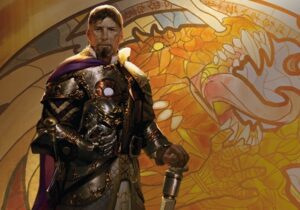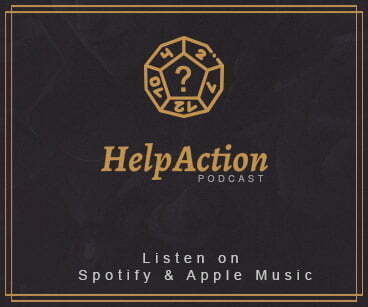In the game of Dungeons & Dragons, a character’s background represents their upbringing and what they used to do with their life before becoming an adventurer. Every character is unique and spent their time differently before setting out to find fame and fortune slaying monsters and saving lives. This can make choosing a background difficult at times. If you are new to the game or would like to know more about how backgrounds function, you can check out my article What Is A Background & How To Use It.
Table of Contents
What is a Folk Hero?
A folk hero is someone from a humble upbringing who has accomplished some form of a great feat that has granted them the status of a hero among the people of the village or town they call home. These heroes of the people usually have strong ties to their homeland and have the drive to help those who need it. Rewards are not usually their motivation for doing what they do, it is their dedication to their people and living up to the reputation that they have earned among them. They have been chosen as their people’s champion and fight not just for them, but the common folk everywhere.
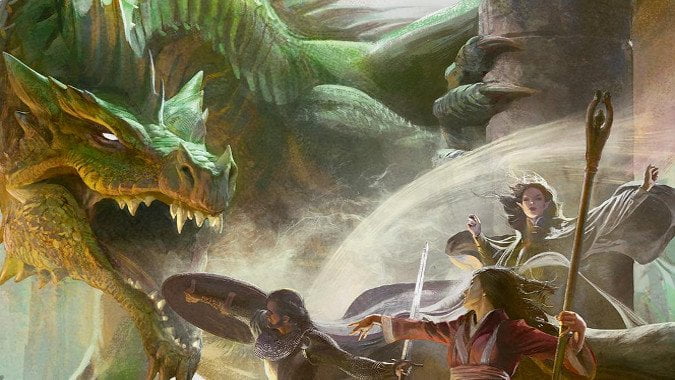
Folk Heroes in D&D
The folk hero background is pretty straightforward and can easily be used by any class as anyone from any kind of upbringing can become a hero to their community. There are a great number of things that could cause you to be looked up to as a hero and what one community considers heroic may be different to another. Although this does imply that most folk heroes are good-natured, not all of them have to be. Even cultists and other evil-doers have people they look up to as their heroes or champions.
Folk Heroes fight for the common folk and try to uphold the values of their community. Clerics and Paladins are easy to make into folk heroes as protecting and supporting others is already a part of those classes. A ranger can become a hero to their hunting community by felling a mighty beast that is killing off all the game within their hunting grounds while an artificer could become just as highly regarded among a village by coming up with an invention that revolutionizes local industries. In the same regard, an evil wizard could be seen as a folk hero among the ranks of a widespread cult by discovering and unlocking the power within ancient texts that will allow them to spread their chaos wherever they see fit. A hero can arise from any kind of community or background.
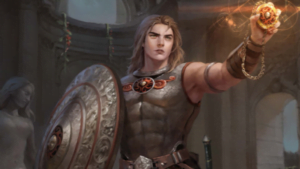
Defining Heroism
Folk heroes earn their place of honor among the people they serve by accomplishing a great act of heroism. However, one act of heroism can vary greatly from another. When using the folk hero background, these feats are represented by you choosing your hero’s defining event, the event that took you from a simple commoner and put you on the path to greatness.
These acts of courage can take many forms and can be performed by anyone willing to take a stand for the common people. They can include things like saving people from a deadly natural disaster, singlehandedly defeating a terrible monster, or training the peasantry to use the items available to them against an invading army. The Player’s Handbook offers a list of defining events to use for your folk hero. Many of them involve standing up against an evil tyrant or fighting against something, but not all heroic acts involve getting physical with an enemy. Choose the option that best fits your character, or work with your Dungeon Master to come up with something unique and fun.
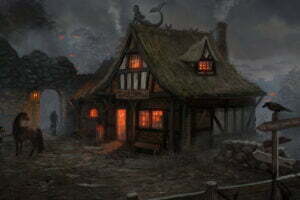
Folk Hero Feature: Rustic Hospitality
This background feature is one of the shorter ones but is very straightforward. Because of your upbringing among commoners, this feature allows you to fit in among other commoners and can earn you a place to eat, rest, and even hide, as long as you haven’t shown them you are a threat to them. They will even help shield you from the law or anyone searching for you but they won’t risk their lives for you.
This can be quite useful if you are in a new town and there isn’t an inn available to stay at or if you just want to keep a low profile. This can also be a good way to try and gain some insight into the town or surrounding area and can open up the door for some fun roleplaying interactions. Who knows, it could even spark a relationship with an NPC that becomes a recurring part of your adventure. Maybe they are just nice and want to be helpful by cooking you a meal when they can, or maybe they get arrested for helping you out resulting in a side quest to try and free them. This is a simple, but useful, background feature that can be used for extra roleplaying ammunition when needed.
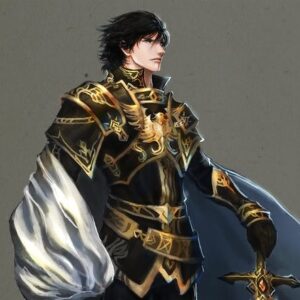
Customizing Your Folk Hero
Choosing this background for your character earns them two skill proficiencies, Animal Handling and Survival, as well as proficiency in your choice of one set of artisan’s tools and land vehicles. The proficiency in the Survival skill makes sense and is always a good one to have. The Animal Handling skill is more situational but kind of goes along with the proficiency in land vehicles because they take animals to operate. If this doesn’t work with the idea you have for your character, you can work with your DM to come up with proficiencies that do. Maybe you were a fisher in a coastal village so proficiency with water vehicles would make more sense for you. This could also mean that maybe you don’t need the Animal Handling skill so you swap it out for Acrobatics to represent your need for sure footing out on the ocean or Athletics because of all the heavy lifting you did. I appreciate they allow you the chance to choose a set of artisan’s tools for you to use. This allows you to customize your character by choosing the tools that best suit the work you did before you gained your status as a hero.
As with each background, you also get a small list of equipment for your character to start the game with. With the folk hero background, you start with things like one set of artisan’s tools of your choice, a shovel, an iron pot, a set of common clothes, and a small pouch of gold coins. The artisan’s tools go along with you being able to customize your profession before embarking upon your heroes’ journey. The other items are simple items meant to represent your humble beginnings as a commoner. The shovel can be useful in many different situations but can easily be swapped out for another simple tool that better suits the flavor of your character if you and your DM feel the need for it. The same goes for the iron pot, especially if you decide your character isn’t a fan of cooking. These items, and the skill proficiencies, can easily be swapped out for a combination of others that make more sense for the character you are trying to play.
Suggested Defining Events
No two heroes are created the same way. Each one has to go through trials to earn the reputation they will become known by. This list will give you an example of a new defining event specific to each class.
Artificer
You developed an invention that streamlined the production of an industry within your community that allowed it to become more prosperous and profitable than it ever was.
Barbarian
Your intimidating ferocity drove off a wildly dangerous beast without you ever taking a swing at it saving a number of your villagers from certain death.
Bard
After a stage performance about sorrow and suffering, a lord was so moved by your words and music they donated a large sum of coins and resources to help the poor and unfortunate.
Cleric
Once the majority of your commune fell deathly ill with a terrible disease, you concocted a cure that saved them from being wiped out.
Druid
A species of animal that is highly revered by your tribe was on the brink of extinction, but due to your protection and nurturing they are thriving once more.
Fighter
After the discovery that some of your warriors had been kidnapped for use in illegal fighting pits, you infiltrated the fighting rings, defeated all of their top champions, and earned the freedom of your companions.
Monk
You successfully led an expedition to retrieve ancient scrolls that detail the teachings of your order after they were stolen from your monastery.
Paladin
The twisted owner of an orphanage was giving children away to a dangerous cult for ritual sacrifices until you put an end to their horrible deeds and saved the lives of many children.
Ranger
A fearsome predator terrorized the lands around your village, causing game in your hunting grounds to become scarce until you took their head as a trophy.
Rogue
After a greedy lord instituted several unfair taxes upon your people, you broke into their estate and stole the coins they had taken from them, and more, returning it to the people.
Sorcerer
Using your arcane prowess you orchestrated events to terrify an angry noble who was bent on trying to usurp the control of power in your village, forcing them to flee in terror.
Warlock
Strange visions foreshadowed the arrival of an attacking force wanting to claim your village as their own but your premonitions allowed for your people to make preparations that would keep the attackers from being successful.
Wizard
Your discovery of ancient arcane texts allowed you to thwart the plans of an evil cult trying to awaken a being of unspeakable evil.
Summary
- Folk heroes are people that come from a humble upbringing and accomplished a great deed to earn a position of great respect among the common people.
- Each hero has a defining event that has caused them to be revered in the eyes of most commoners.
- The Rustic Hospitality feature can earn you a place to eat, rest, or hide and even get some protection from the law or others that would be looking for you.
- Feel free to work with your DM to swap out the proficiencies with skills and tools or your starting equipment for things that would better suit your character.
- Your defining event doesn’t always have to involve fighting something and you can come up with an event that is fun and interesting for any class.
If you would like the full details of this background for use in your games, you can find it in the Player’s Handbook.
